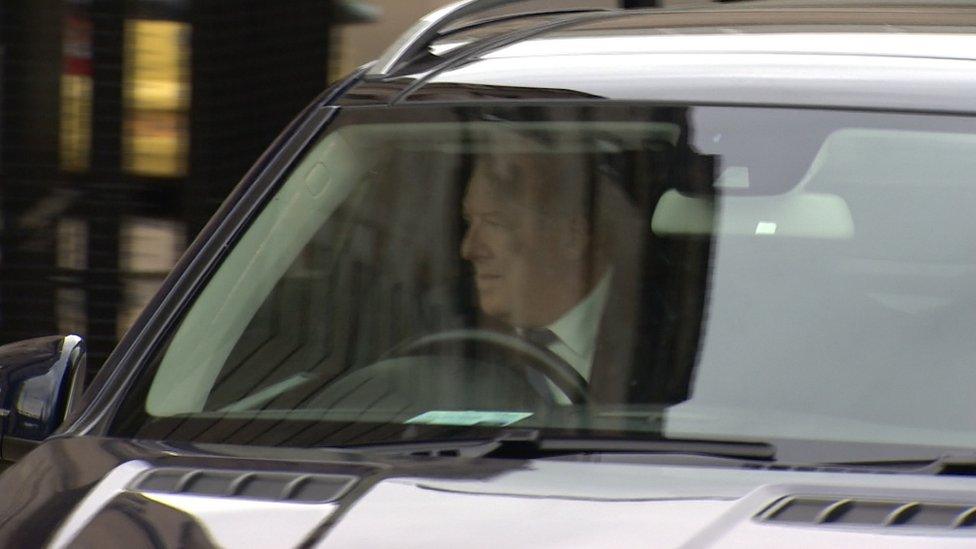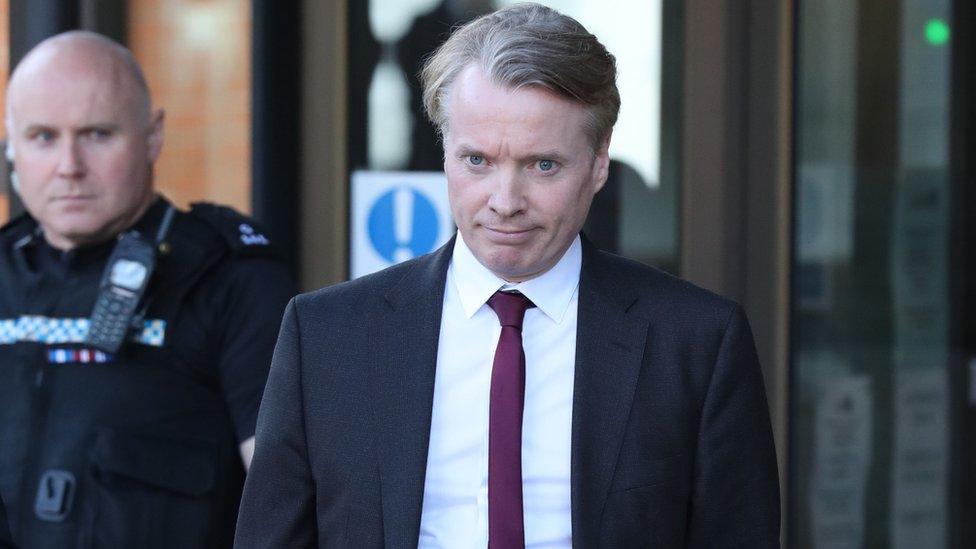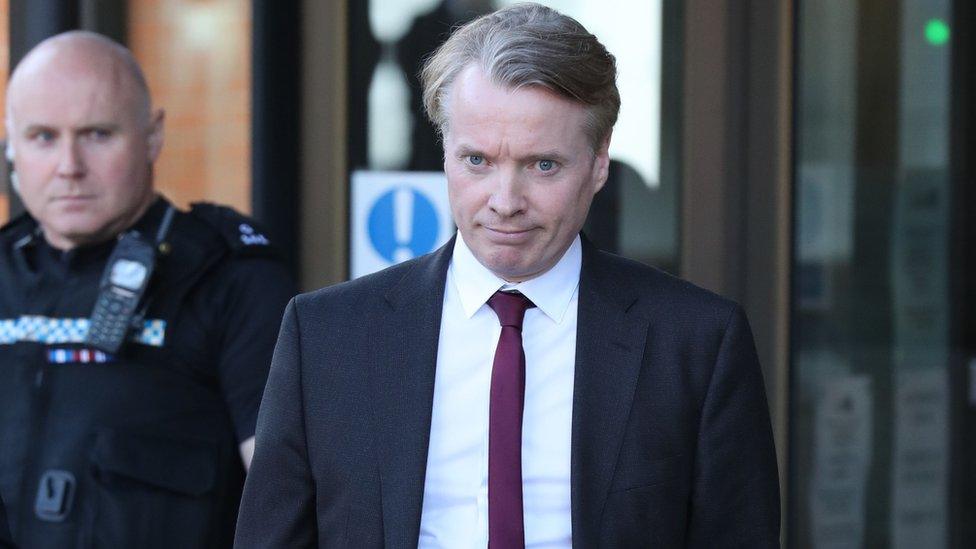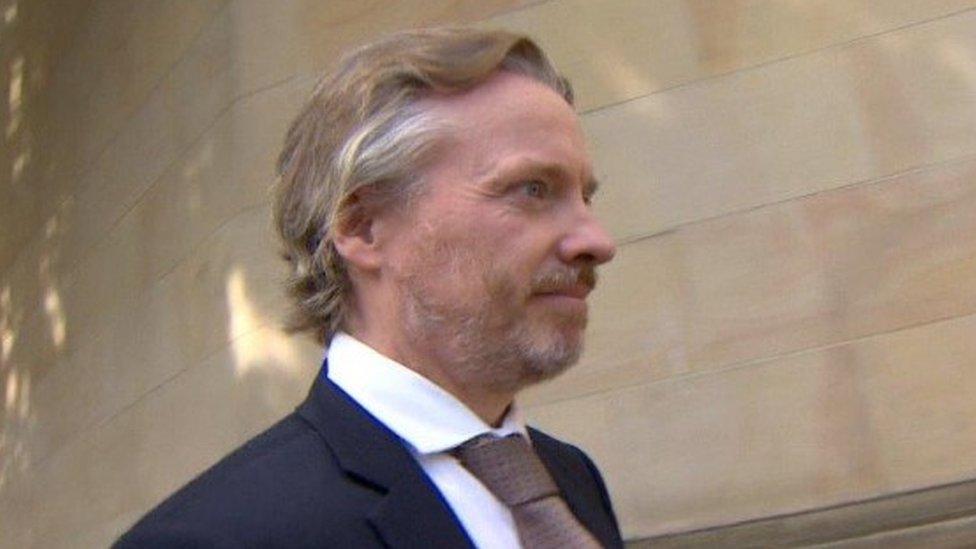Craig Whyte trial: Sir David Murray says Ticketus deal was not an option
- Published

Sir David Murray took control of Rangers in 1988 and sold the club in 2011
Sir David Murray has insisted he would not have done a deal with Craig Whyte to buy Rangers if he thought the money was coming from future season-ticket sales.
The former Rangers owner said the deal with tickets agency Ticketus "wasn't in the best interest of the club".
Sir David was giving evidence at the trial of Mr Whyte, who is accused of a fraudulent acquisition of Rangers.
He denies a charge of fraud and another under the Companies Act.
Sir David, who described himself as the chairman of Murray Capital, told the court he paid £6m for an 85% share of Rangers in 1988.
'Grossly exaggerated'
During his time with the club, he admitted that it was "hard to win and run a business at the same time", but added that Rangers was "very important" to him.
In 2007, Sir David put the club up for sale, but said no deal had been agreed after concerns about the plans of one potential buyer.
He said that by 2009 Rangers had accumulated a bank debt in "the low 30 millions".
However, Sir David insisted that there was no talk of the club entering administration while he was chairman and that its financial problems had been "grossly exaggerated".

Craig Whyte bought Rangers in May 2011
Asked by prosecutor Alex Prentice QC if the club's failure was inevitable in the run up to its sale to Mr Whyte, he replied no.
Sir David stood down as Rangers chairman in 2009.
He told the court that in November 2010 he met Mr Whyte in the south of France after Mr Whyte expressed an interest in buying Rangers.
'Future ticket sales'
Sir David told the court: "Everything seemed OK at the time, I have to say."
He thought the deal was in the best interests of the club if it had been seen through, but that Mr Whyte did not fulfil the terms of the agreement.
These included an £18m bank overdraft being paid and £5m per year for four years being spent on the playing squad.
Sr David told the court that no takeover deal would have been done with Mr Whyte if he had been told that the club's bank debt would be cut using funding from future ticket sales.
Mr Prentice asked him: "Was there discussion about third party funding being a significant chunk of the financing?"
Sir David said: "Not at all."
The ex-Ibrox chairman said he believed finance was coming from Mr Whyte's "own pocket".
Prosecutors claim Mr Whyte helped fund his 2011 takeover by effectively selling off three years of season tickets.
Mr Murray insisted the "Ticketus route" was not an option and told the court that Mr Whyte had indicated to him that the money for the Rangers takeover was coming from "his own funds".
Bank debt
The former chairman also said he did not become aware of the Ticketus deal until a year after he had sold the club to Mr Whyte.
Sir David later agreed it could have been earlier - October 2011 - when he first learned about any Ticketus deal.
Donald Findlay QC, defending, went over a number of text messages between Sir David and Whyte in late 2011.
This included the men wishing each other a good time over the festive period.
Mr Findlay suggested this was evidence of "contact of a reasonably cordial nature" - despite it apparently being after Sir David knew about Ticketus.
The messages also showed the pair had arranged to meet at a restaurant in Monte Carlo.
But Sir David told the court that he had "no relationship" with Mr Whyte. He also said he only met him four times.
Tax schemes
Earlier, the former Ibrox chairman was quizzed about tax schemes said to have been used by the club.
Sir David said: "It gave us the opportunity to get players we may otherwise not been able to afford."
Mr Whyte is accused of pretending to former Rangers owner Sir David Murray, and others, that funds were available to make all required payments to acquire a "controlling and majority stake" in the club.
The funds included clearing the £18m bank debt, £2.8m for the "small tax case" liability, a £1.7m health-and-safety liability and £5m for the playing squad.
The Crown alleges Mr Whyte had only £4m available from two sources at the time but took out a £24m loan from Ticketus "which was held subject to an agreement or agreements being entered into between the club and Ticketus after said acquisition".
The second charge under the Companies Act centres on the £18m payment between Mr Whyte's Wavetower company and Rangers to clear a bank debt.
The trial before eight men and seven women continues.
- Published24 April 2017

- Published21 April 2017

- Published20 April 2017
